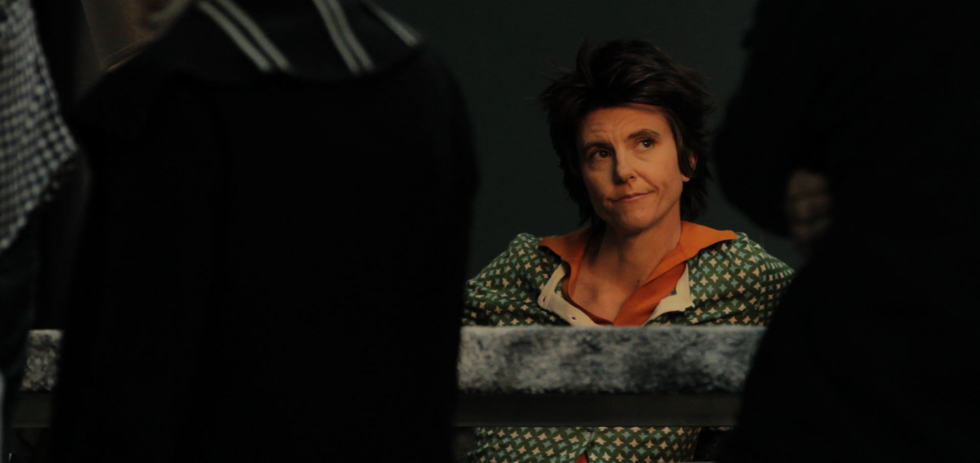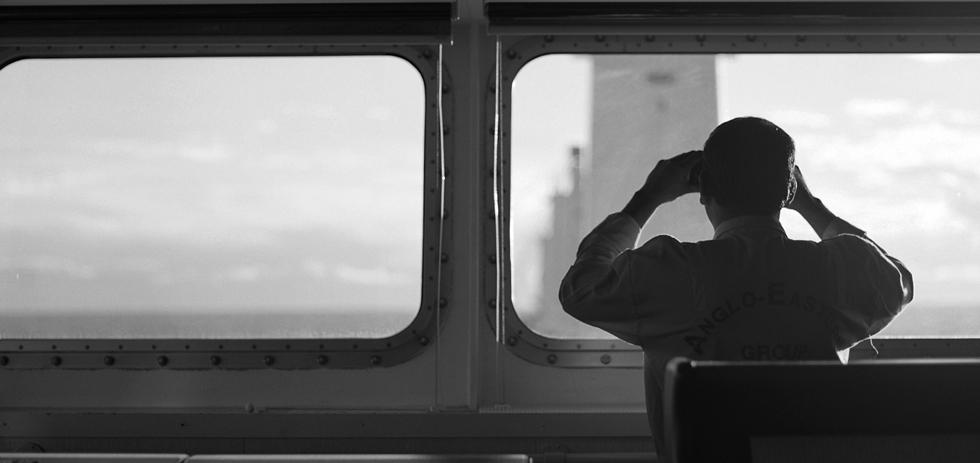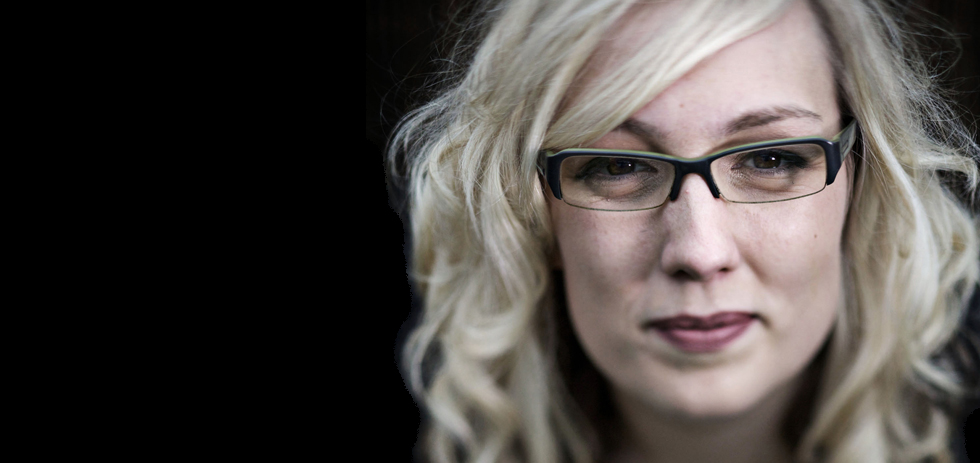Charlotte Cook is the Director of Programming at Hot Docs, Canada. Cook previously worked for Frontline Club in London, where she was the head of film programming, showcasing over 100 documentaries each year. Cook has worked in programming beyond Frontline with the Edinburgh International Film Festival, BBC Storyville and written frequently about documentary cinema for various publications. Catherine Knight caught up with her at Hot Docs to discuss her role in programming the festival.
Thank you for sitting down with us today and congratulations on the really strong program. There is an exceptional range, and as cliché as it is I have to say it definitely feels like there is something for everyone. First off I’d like to ask which documentary in the program have you been most excited about?
Haha, I never ever pick favourites. I can’t because film makers get so upset. I never say my favourite or anything like that!
Okay, I won’t get you into trouble. There are some really exciting works in terms of virtual reality in DocX series, particularly the one-off performative presentation of HighRise and the ongoing installation based virtual reality showcase. Is the inclusion of these works a reflection of an increasing interest for Hot Docs in new media documentary forms?
I think so, it’s something that we have considered for a few years. I mean Canada is the world leader when it comes to interactive content so we’ve been really assessing the landscape to see when was the right time and we really felt like it was such a strong year for interactive content. We felt that this was the time to kind of start looking into that and I think the audiences were also very keen to have these experiences at the festival. To have audiences being able to come and actually interact with projects in this way.
Many of us at 4:3 were excited to see the inclusion of Chantal Akerman’s News From Home, especially as the film finds the category of documentary something of an awkward home. What was the process of selecting films for the retrospective program?
Sure, so we started this retrospective program a few years ago, I mean I’ve always been very keen to get older films back into a theatrical environment. We realized that there are so many films that people haven’t had a chance to see that deserve to be on the big screen again. It’s been really fun putting that program together over the last few years and this year we wanted to feature a lot of strong female director’s films. We felt that Chantal’s work really is legendary and it does kind of straddle that line in terms of the art form and where she fits into fiction and documentary. And it’s also a film that is beloved by film makers, I mean you tend to find a lot of the films put in that section are ones that film makers find are a huge inspiration to them. So that was part of the reason. It’s one of those films that filmmakers constantly talk about, and I think Chantal is a huge inspiration to a lot of filmmakers working now. So to be able to show that kind of work is something we really wanted to do.
What prompted the focus on Carole Laganiere’s work this year?
Every year we do two awards or retrospectives, and one is to celebrate Canadian film makers. Carole has had many films at the festival, she had a film last year too, and we really felt that she is somebody that we wanted to expose more to our audiences because she’s such an incredible film maker and her body of work is phenomenal, so that was part of the reason we wanted to be able to celebrate her this year.

I’m interested in the choice of Tig as the opening night film, in a lot of ways it follows a traditional illness and inspiration narrative, albeit one which has a degree of public significance due to her fame as a comedian and openness in the media regarding her experiences with cancer.
Yeah I mean I don’t think we are looking to go crazy when it comes to an opening night film in terms of formally inventive work. With opening night we are considering what we want to open the festival with and what are we trying to say. And every year we build on that so when we did the Ai Wei Wei film we were really trying to talk about the power of art. And last year with The Internet’s Own Boy we really wanted to have this discussion about our world in relation to the internet. And so this year I really felt like, you know we have a comedy section and we really wanted to explore the definition of documentary. Tig is a perfect example of that, of how real life is sweet and sour and this is a perfect way to show that documentary can be funny but there’s always that extra level of power with films that really grab you. And Tig does that completely.
Transfatty seems to hit a similar note being a somewhat comedic look at terminal illness.
What really is astounding about that film is that the director is the subject. And what you really see is the determination of filmmaking. As his body is failing him his dedication to making the film grows stronger and stronger and becomes this really powerful look at what art means to somebody, and I think that is really the take-away from that film. He is such an amazing person, and just seeing what this film means to him as he’s making it.
The program has a nice balance between the politically charged works such as the green peace documentary How to Change the World, and the host of intimate and endearing portraits of people in the mundane The Sandwich Nazi, and A Different Drummer. Did this inclusion of global and micro levels of storytelling emerge organically in the selection process?
I mean we always try to do that every year because you know we are obviously so diverse in having such a huge audience that we have to cater to. And so we just really want to have that sort of selection approach in that we know some of our audience really likes those types of stories so we want to support that, and also they are the films that really create discussion but then also these intimate portraits and there’s a huge huge group of people that want to see those and you know we love those too. So it is really a case of balancing the program in terms of just the different ways that you can tell stories.
Could you tell me a bit about how the Scotial Bank Big Ideas events were curated? Was there a desire to integrate the industry conference side of the festival more with the general program?
It’s more that we are really interested in what the festival experience is beyond just the films that we provide for our audience. We bring a huge amount of subjects to the festival every year and what we really wanted to do this year is sort of redefine what celebrity means, so it’s not about how famous they are it’s about having incredible people! Here the celebrities are these amazing people that we see on screen. The idea was to have an outlet in the festival to bring them to the audiences and have those discussions. My goal is always that people go and see a film and then want to go straight to dinner and spend three hours talking about what they’ve seen. This is a way for them to do that at the festival.

Transatlantic looks stunning. Is there an urge to always include a piece from the beloved genre of travel log films and poetic documentaries?
I mean we don’t really program in that way, because obviously our audiences are around two hundred thousand people. The goal is just to be as diverse, in front and behind the camera and also in terms of style and the way people are telling stories. And for us having more experimental work is always really great because Toronto audiences are savvy and so smart when it comes to the craft of film making that we tend to want to expose them to all kinds of approaches.
On experimental approaches, Amina Profile and Stand By for Tape Back Up have been some of my favourites of the festival so far. What do you feel is the role of experimental documentaries in the Hot Docs?
Well I think for us we tend to find fiction festivals are a lot less bold when it comes to those definitions and putting in works that have blurred those boundaries. And it is something that we really love talking about. So again it’s those kind of films that really generate great discussion. And also I find that because fiction is so much harder to make in terms of production, not in general because obviously documentaries are much much harder to make, but in terms of playing with the craft we are finding a lot of the most ambitious film makers in terms of really developing what cinema means are coming through the documentary world. So we’ve really gone out and embraced that and given them the outlet to really show what they are looking at and what they are trying to do. And Tape Back Up is such a phenomenal film, it really shows one artist figuring out how to tell a story in different ways.
Thank you so much for chatting to us. Good luck with the rest of the festival.
Thank you.
